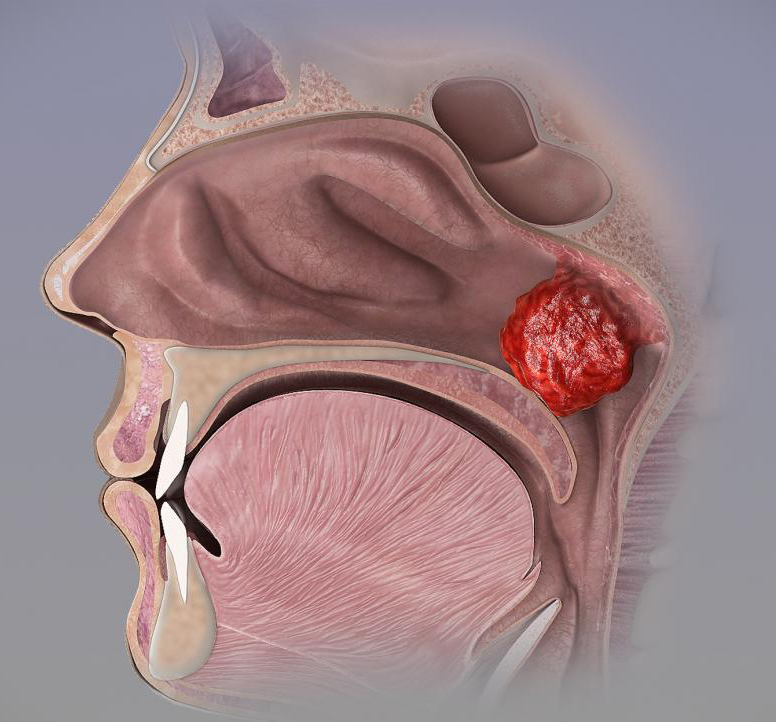What is a Adenoid ?
Adenoids, also known as pharyngeal tonsils, are a large piece of lymphoid tissue located at the back of the throat, behind the nose. Along with the tonsils, adenoids are part of the body’s immune system and help fight bacteria and viruses that enter the body through the nose and mouth.
Here are some important points about adenoids:
- Location: Adenoids are located in the upper part of the throat, behind the nose.
- Function:Adenoids play a role in the immune system, especially during childhood. They help produce antibodies and trap bacteria and viruses that are inhaled or ingested.
- Development:Adenoids typically grow until the age of 5 to 7 years and then begin to shrink.
- Adenoid Hypertrophy:Sometimes, adenoids can become enlarged or swollen due to infection or inflammation. Enlarged adenoids can obstruct the nasal passage, leading to difficulties in breathing, and may cause sleep-related issues such as snoring or sleep apnea .
- Surgical Considerations: Adenoidectomy is a common procedure, especially in children, and is usually performed under general anesthesia. Recovery is generally quick, but some discomfort and mild bleeding can occur post-surgery.
- Impact on Speech and Development: Enlarged adenoids can affect speech development and lead to a nasal quality in voice due to obstruction of airflow.
- Associated Conditions: Conditions such as allergies, asthma, and other respiratory issues can be associated with adenoid problems.
- Treatment: Treatment for enlarged adenoids may include watchful waiting, medications to manage symptoms, or surgical removal (adenoidectomy) if they cause significant problems.
- Infections: Enlarged adenoids can contribute to recurrent ear infections, sinusitis, and throat infections, as they can block the Eustachian tubes and nasal passages.
If you have specific questions or need more detailed information about adenoids, feel free to ask!

Adenoids Symptoms
- Nasal Congestion: Difficulty breathing through the nose.
- Mouth Breathing: Breathing primarily through the mouth.
- Snoring: Loud snoring during sleep.
- Sleep Apnea: Interrupted breathing during sleep.
- Frequent Ear Infections: Recurrent ear infections or fluid buildup.
- Sinus Infections: Chronic sinusitis or frequent sinus infections.
- Sore Throat: Persistent throat discomfort.
- Difficulty Swallowing: Discomfort when swallowing.
- Speech Changes: Nasal quality to speech.
- Bad Breath: Chronic halitosis.
Adenoid Surgery Treatment Options at Kaushik ENT Hospital?
Kaushik ENT Hospital in Udaipur offers various treatment options for adenoid issues. Adenoidectomy is the standard procedure, involving the surgical removal of enlarged adenoids under general anesthesia. The hospital also provides endoscopic adenoidectomy for a minimally invasive approach using an endoscope, coblation adenoidectomy for reduced bleeding and quicker recovery, and laser adenoidectomy for precise tissue removal with minimal impact. Postoperative care includes pain management, dietary guidance, and follow-up visits. The hospital’s experienced ENT specialists and advanced technology ensure effective and personalized care for optimal outcomes. For more details, contacting the hospital directly is recommended.

Adenoidectomy in Udaipur | Adenoid Removal Surgery in Udaipur | Adenoid Treatment in Udaipur
Which hospital provides Adenoid Surgery treatment in Udaipur?
Kaushik ENT Hospital in Udaipur is indeed a facility that specializes in ear, nose, and throat treatments, including adenoid surgery (adenoidectomy). The hospital is known for its experienced ENT specialists and comprehensive care for various ENT-related conditions.
If you are considering adenoid surgery at Kaushik ENT Hospital, it is advisable to:
- Schedule a Consultation:Meet with an ENT specialist to discuss the symptoms, diagnosis, and the need for surgery.
- Inquire About the Procedure:Ask about the surgical process, recovery, and any preoperative requirements.
- Check Facilities: Ensure that the hospital has the necessary facilities and equipment for safe and effective surgery.
- Follow-Up Care: Discuss the follow-up care and support provided after the surgery.



Leave A Comment